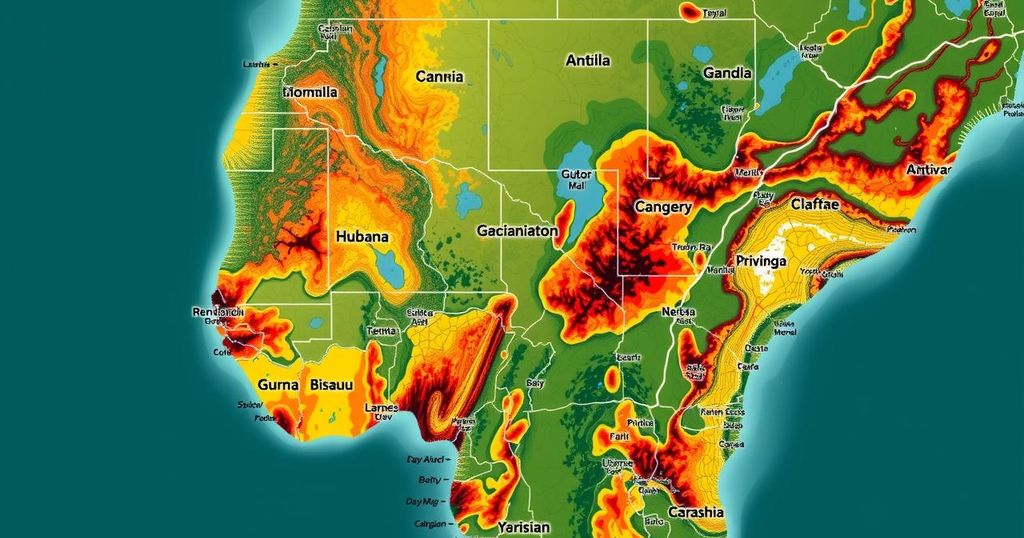Strengthening Governance and Climate Resilience in Guinea-Bissau

The Country Climate and Development Report highlights the need for strong governance and financial systems to enhance climate resilience in Guinea-Bissau, addressing its significant poverty, instability, and environmental vulnerabilities while promoting sustainable development practices.
In a recent report, the Country Climate and Development Report (CCDR) highlights the imperative need for robust institutional frameworks and financial systems to bolster climate resilience and support sustainable development in Guinea-Bissau. Despite its advantageous natural capital per capita, the nation grapples with severe developmental obstacles, including high poverty levels, political unrest, and economic limitations such as dependence on a single crop. As climate change exacerbates these issues, especially for marginalized coastal communities reliant on agriculture and fisheries, governance and political stability emerge as critical components for sustainable growth. Rosa Brito, the World Bank Group Resident Representative in Guinea-Bissau, stated, “The Country Climate and Development Report provides Guinea-Bissau with a strategic framework to align development goals with climate action, promoting positive transformations and sustainable growth.” She emphasizes the urgency of building resilience against climate shocks due to the country’s wealth of natural resources and inherent vulnerabilities. The CCDR advocates for an integrated approach involving governance enhancement, economic diversification, and investment in sustainable practices, which will collectively mitigate climate-related risks. Immediate actions identified in the CCDR prioritize climate-smart agricultural methods to enhance productivity, environmental protection, energy access expansion, and bolstering human capacity through education and knowledge dissemination. Coinciding climate actions with developmental strategies will enable Guinea-Bissau to realize its growth aspirations while fostering a secure environment against climate threats. In summary, cultivating a more resilient and equitable economy is pivotal for addressing the global climate crisis.
Guinea-Bissau, located in West Africa, is endowed with significant natural resources, yet it faces substantial socioeconomic challenges. High poverty rates, political instability, and a narrow economic base are prevalent issues, compounded by inadequate infrastructure and limited electricity access. The country is particularly vulnerable to climate change, which affects its agricultural and coastal communities profoundly. Strengthening governance and economic resilience is instrumental for Guinea-Bissau to navigate these challenges and achieve sustainable development goals.
The findings of the Country Climate and Development Report underscore the crucial role of governance and institutional strength in fostering climate resilience in Guinea-Bissau. By aligning development initiatives with climate action, the nation can leverage its natural resources while addressing vulnerabilities that threaten its long-term prosperity. The immediate focus on climate-smart agriculture, energy access, and human capital development presents a pathway for sustainable growth and resilience against the impacts of climate change.
Original Source: www.miragenews.com






